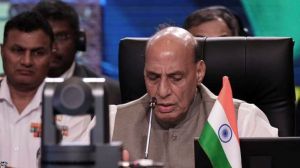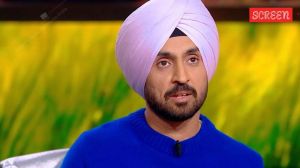 Prime Minister Narendra Modi
Prime Minister Narendra Modi
The government may consider taxing agricultural income, beginning with a proposal to target farmers with non-agricultural income above a certain threshold. This was one of the specific suggestions made by tax officers to Prime Minister Narendra Modi at a two-day conference of tax administrators, Rajasva Gyan Sangam, last month. It has been pitched as a low-hanging fruit that could potentially bolster ongoing efforts to widen the country’s taxpayer base.
“Tax officials made a specific suggestion that the government should consider taxing agricultural income, not fully but partially. It was said that people having a regular income alongside agricultural income above a certain threshold can be brought under the tax net,” a government official said. The suggestion was made in the course of the Prime Minister’s session at the event.

[related-post]
Watch Video: What’s making news
There are about 25 crore taxpaying households in India, of which 15 crore households are designated as agriculturalists and the remaining 10 crore are non-agriculturalists, according to estimates produced by Minister of State for Finance Jayant Sinha at a briefing after the PM’s session at the Rajasva Gyan Sangam.
Story continues below this ad
At present, agricultural income is used for determination of the tax rate while computing tax liability for an individual if the net agricultural income exceeds Rs 5,000 and total income, excluding net agricultural income, exceeds Rs 2.5 lakh in a year. The tax on agricultural income is, however, later deducted from the total tax to be paid by the individual as agricultural income is exempt from tax. Any decision to tax agricultural income by the Centre will require an amendment to the Constitution.
The Central Board of Direct Taxes (CBDT) has been looking closely at agricultural income claims of over Rs 1 crore by assessees in their tax returns in view of a PIL filed in the Patna High Court, which had raised concerns about agricultural income being used as the route for unaccounted money. Over 2,300 cases showing agriculture income of over Rs 1 crore have been detected by the Income Tax Department in the last nine assessment years.
In the other suggestions to the Prime Minister at the conference, tax officials expressed concerns regarding levy of cesses and surcharges by the Centre, which even though are proposed to be ad-hoc in nature initially, but end up being permanent.
“The tax officers suggested that levy of cesses and surcharges should be temporary. It was suggested that taxpayers as well as states, which do not get any share of cesses and surcharges from the Centre are complaining about the various cesses, so they should be levied only for a defined period of time. Otherwise, the tax rate, in effect, becomes much higher than the maximum rate of 30 per cent and that does not reflect well on the country’s taxation system,” another government official said.
Story continues below this ad
Tax officials had also suggested providing some incentive to taxpayers to file their tax return, with one of the examples of incentives being an insurance cover. For first-time taxpayers, incentive of accidental insurance could be given by the government, while for regular taxpayers, a life insurance cover could be provided as an incentive to file their returns regularly.
A holiday of around a year from scrutinising and verifying I-T returns was suggested by some tax officials in order to spend more time learning the details of a host of e-initiatives being implemented by the tax department.
Suggestions were also made regarding improvement in infrastructure of office spaces along with request by the tax officials to the PM to include an appeal to fellow citizens to pay their taxes honestly in his Independence Day speech this year.
Prime Minister Modi, addressing the inaugural session of the conference, asked tax officers to build a “bridge of trust” with assessees to achieve collection targets without coercion. He asked officials to increase the taxpayer base significantly, by leveraging instruments such as the government’s ‘Give it Up’ initiative for consumers to voluntarily give up LPG subsidy. This was the first time that the two revenue boards, the Central Board of Direct Taxes (CBDT) and the Central Board of Excise and Customs (CBEC), held a simultaneous conference.

 Prime Minister Narendra Modi
Prime Minister Narendra Modi






























